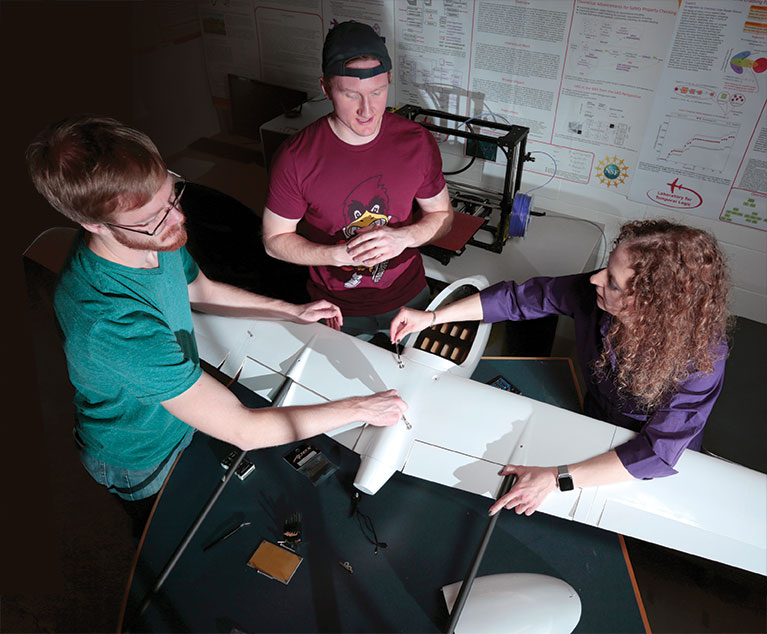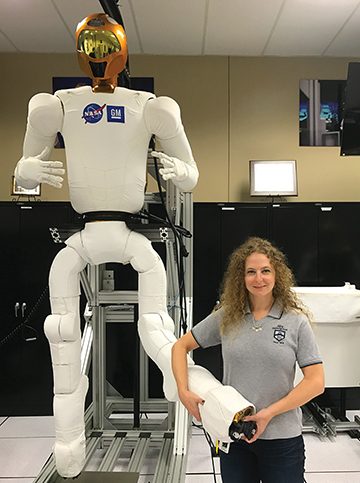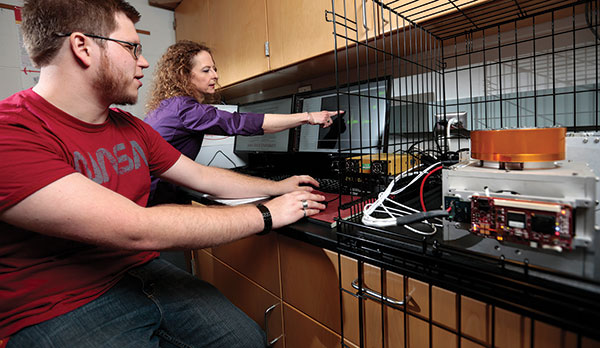
Looking to the sky of the future, Kristin Yvonne Rozier sees Unmanned Aerial Systems (UAS) criss-crossing the horizon – and many new challenges for UAS safety and air traffic control. Rozier, an assistant professor of aerospace engineering, is developing new tools to help pilot-less aircraft safely fly themselves.
“Our goal is to create on-board systems that can analyze many different kinds of UAS data in real time. Is something broken, off-line, not responsive? We want to build in enough reasoning that the UAS can have self-awareness to make quick adjustments in air,” said Rozier.
To get to an autonomous onboard system, first up is better techniques to accurately analyze the complex behaviors of UAS. Rozier and her team are creating new algorithms to enable formal methods evaluation specific to the needs and challenges of UAS.
“Our new approach will tie together data about UAS’ design, flight and the air traffic control system. That will make it possible to take a step-by-step look at how UAS behave in a wide-ranging variety of scenarios. We really do need to answer the question ‘How do you know this will be safe?’ before UAS take flight,” said Rozier.
Rozier plans the new tools to be scalable and efficient – and to integrate with the planned automated U.S. air traffic control system.
“UAS also prompt many questions about how we best regulate their use, and we hope that our research can help provide some answers and help create on-board technology to help show UAS are complying with regulations.
Rozier’s work is funded by a NASA Early Career Faculty Award and a National Science Foundation CAREER award. Her team is also developing an open-source fixed-wing UAS kit so that other research groups and student organizations can more easily build and study UAS.
“We are creating a reconfigurable research test bed that is truly widely accessible. We are writing clear instructions for how to build it from inexpensive parts using common tools found in most labs,” said Rozier.
Putting UAS within reach of more engineers will increase the amount and breadth of fixed-wing safety research at a time when research is critically needed.
“Future technologies like UAS will make our lives better, but only if we make them as safe as possible,” said Rozier.
Autonomous space systems

In a NASA-funded project, Kristin Yvonne Rozier is optimizing the self-governance of autonomous systems for space missions. Rozier’s research team is studying a joint from a NASA robot to develop an onboard system that monitors and diagnoses problems during autonomous system missions.
The framework, called R2U2, will continuously monitor sensors, software and hardware to detect trouble while meeting the challenges of working in real time, being flexible across many types of platforms, and strict requirements for size, weight and power.
